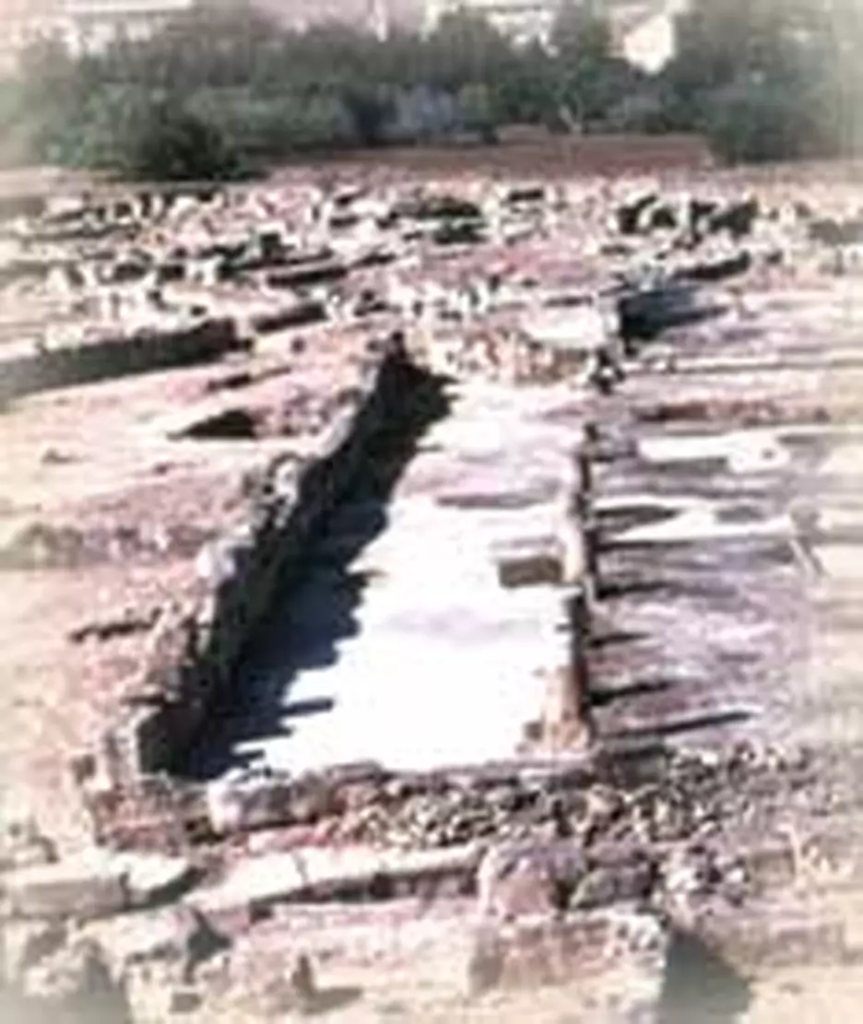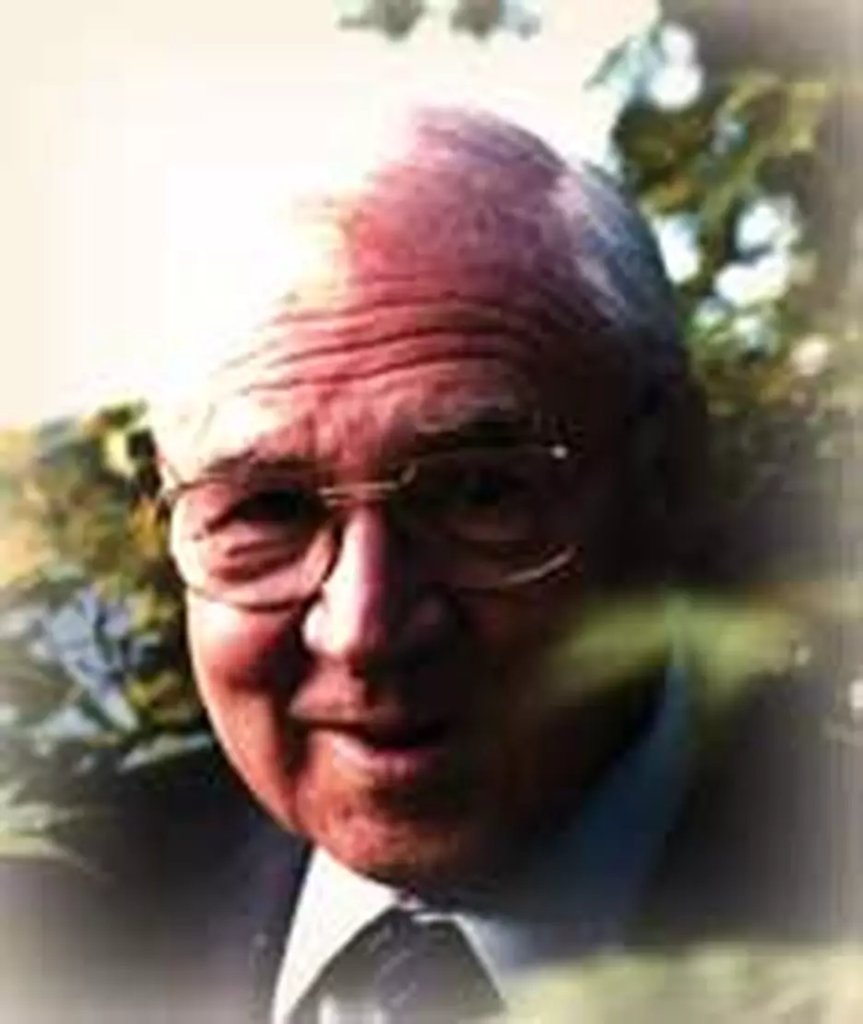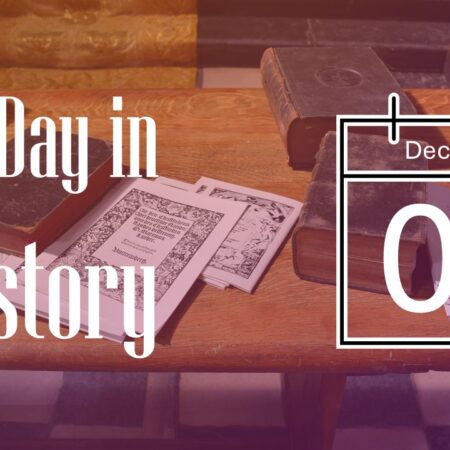
298
The merry-making was at its height that July, 298. The troops in North Africa celebrated Emperor Maximian’s birthday with feasting and drinking. As usual, there were sacrifices to the emperor, who was ranked with the gods.
But not everyone was in a party mood. Marcellus, a centurion (officer over a hundred men) surveyed the scene with disgust. He had reached a crisis. As a convert to Christianity, he knew that Maximian, however powerful, was a mere man. Christ alone could be ruler of his heart.

Abruptly, he stood. In front of all the men, he removed his military belt and threw it down. “I serve Jesus Christ the Eternal King,” he said loudly. He also flung down his vine-switch, the insignia of his rank. “Henceforward I cease to serve your Emperors, and I scorn to worship your gods of wood and stone, which are deaf and dumb idols. If such be the terms of service that men are forced to offer sacrifice to gods and Emperors, behold I cast away my vine-switch and belt, I renounce the standards, and refuse to serve.”
Astonished, his fellow soldiers seized him. To their ears, Marcellus’ words were not only blasphemy but insubordination and treachery. They dragged him before the local governor, Anastasius Fortunatus. “Throw him into prison,” said Fortunatus.
After the feast was over, he called Marcellus out. “What did you mean by removing your military gear in violation of military discipline and throwing away your belt and vine-switch?”
Marcellus replied boldly. “…I made answer openly and in a loud voice that I was a Christian and that I could not serve under this allegiance, but only under the allegiance of Jesus Christ the Son of God the Father Almighty.”
Fortunatus said he could not pass over this insubordinate conduct. He would report the matter to higher authorities. That is how Marcellus found himself in Tangier (now a city of Morocco), on October 30th, standing before Aurelius Agricolan. Agricolan heard the evidence. “What madness possessed you to cast away the signs of your allegiance, and to speak as you did?” asked Agricolan.
Marcellus answered: “There is no madness in those who fear the Lord.”
After more arguments and threats, Agricolan dictated this sentence: “Marcellus, who held the rank of centurion of the first class, having admitted that he has degraded himself by openly throwing off his allegiance, and having besides put on record, as appears in the official report of the governor, other insane expressions, it is our pleasure that he be put to death by the sword.”
According to ancient tradition, based on an appendix attached to Marcellus’ court records, the man taking the dictation was the stenographer, Cassian. The verdict seemed so unfair to him, that he threw down his pen with an exclamation and refused to write another word. Agricolan ordered him thrown into prison, too. On this day, December 3, 298, Cassian followed Marcellus to death, beheaded for his bold stand.
1926
Paul White signed a decision card on this day, December 3, 1926, taking the Son of God as his Savior. Afterwards he didn’t feel the least bit different. He could have chucked Christianity then and there, but something within himself said that his faith rested not on a feeling but on God’s promise. He decided to act on God’s promise.
He made another important decision this day. If he was going to be a member of God’s family, he “would do so in the full light of day.” If he had not made that vow then and there, would he have become world-famous? At once he began telling people that he had asked Christ to run his life. One of the people he spoke to was his chemistry teacher. Bill wasn’t impressed. “Go for facts, White. That all sounds rather emotional…in anyone’s thinking an empty tomb is a remarkably poor foundation for a religion. Now get on with your work.” Paul got on with work–the work of telling even more people about Christ. Before his life was over, he would be internationally known as the “Jungle Doctor.”

He had no inkling that that nickname lay over his horizon when he set out to complete his education as a medical doctor. He fixed his eyes on becoming a missionary to Africa. Paul’s Dad had served in the Boer War in South Africa and fired his son’s imagination for the Dark Continent.
Paul needed money. A chemistry job was offered him and he was greatly tempted to take it, but he realized it was a distraction. Instead, he fought hard to win and maintain a medical scholarship. Although far from an ace student, he got the funding and persevered to the end of his difficult courses in which a single failing grade would have cost him his scholarship.
God worked miracles to get Paul to Africa. In Tanganyika, he learned to clothe his teaching in fables, creating stories with the timeless quality of Aesop’s fables. But Paul pointed people to Christ, something Aesop could not do. He began writing stories when his wife’s health forced him to leave Africa and return to Australia. The tales became known world wide.
When we decide to follow Christ, we never know what lies in store. Few of us become as well known as Paul White was. But the choice to follow Christ remains the most important decision of our lives.
1990
HT: Dan Graves
ON THIS DAY, 3 DECEMBER 1990, Iran hanged Hossmein Soodmand, an Assemblies of God pastor. His “crime” had been committed thirty years before and broken no law on the books—he had converted as a young man from Islam to Christianity. Soodmand could have escaped the death penalty by recanting his faith but refused.

The martyred pastor left behind him an almost-blind wife and four children. A son, Ramtin, also became a Christian worker and would be imprisoned eighteen years later in 2008. Soodmand’s daughter, Rashin, obtained asylum in the West where she engaged in Christian ministry and spoke out against Iran’s persecution of Christians.
In an interview, Rashin described two events that had brought her father to Christ. The first occurred when he was seven. As a good Muslim, he hated Christians. One day he threw a stone to break a Christian woman’s water pot. Successful, he turned to run but stumbled and cut his knee. The woman moved toward him and he expected her to hit him. Instead she helped him up, cleaned his wound, and gave him a sweet treat. The second incident occurred while he was in the army. He became so ill he had to be hospitalized. An Armenian Christian prayed over him and he awoke healed, having dreamed of Jesus in the night.
After his recovery, he located a Christian house of worship where he was mentored in his newfound faith and became a mouthpiece for Christ. While assisting at a Christian Institute for the Blind in Isfahan, he met Mahtab Noorvash, whom he married. (The pastor who performed the ceremony would die as a martyr, too.)
Under the Shah of Iran, conversion to Christianity was not treated as a crime. However, when the Islamic Revolution seized Iran and Ayatollah Khomeini rose to power, repression of Christians intensified. Had Soodmand merely been a participating layman in a church, he would probably not have suffered severe persecution. But he had moved back to his hometown of Mashhad and established a growing church in his basement. Authorities often warned Soodmand and gave him chances to renounce his faith. Christians offered to help him escape from Iran but he refused to abandon his pastoral work. Finally, he was arrested. Two weeks later, his family learned he had been executed.
Although no secular law said Soodmand’s conversion was illegal, Iran’s clerical rulers had instructed judges to apply Sharia law wherever the official code did not explicitly spell out a crime. Sharia consists mostly of previous rulings and precedents. Under all versions of Sharia, the death penalty is applicable for one who converts away from Islam. The bottom line was that Iran’s Muslim leaders wanted witnesses like Soodmand silenced so that they could not convert more people to Christianity.
Rashin was thirteen when her father was arrested and executed. “Of course, my father refused to give up his faith. . . . He could not renounce his God. His belief in Christ was his life—it was his deepest conviction.” She said her family was not permitted to bury his body, nor to mark his grave after workers interred him in a cemetery reserved for the accursed.
